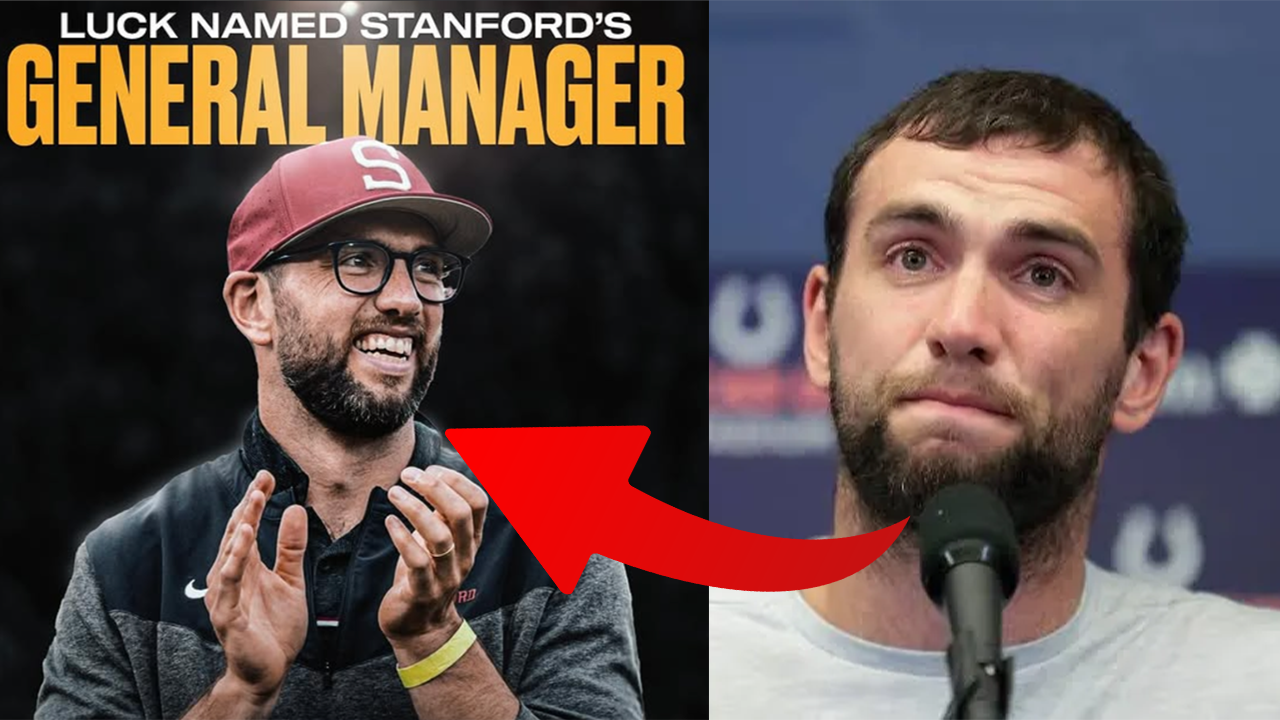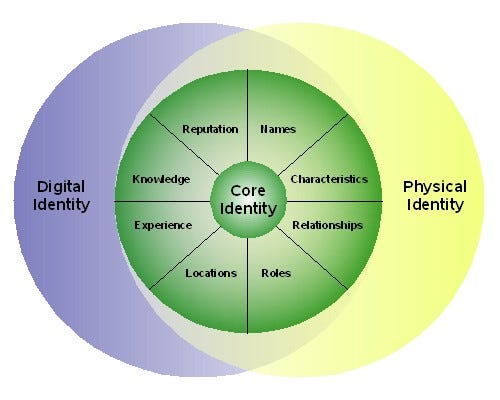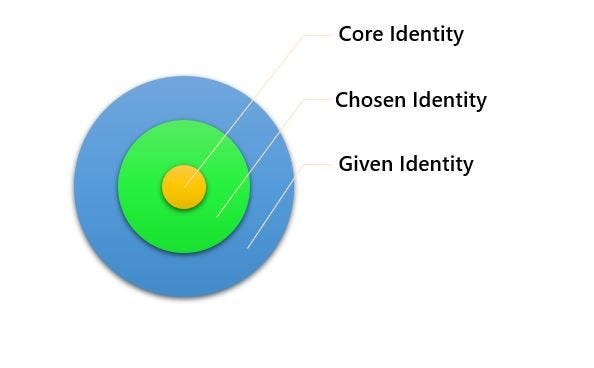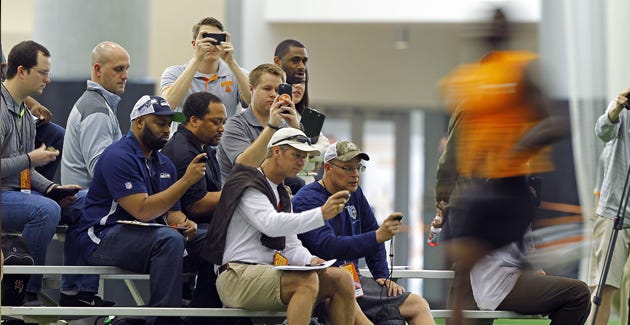I define core identity as a person’s innermost essence. It’s who you truly are underneath all the posing and posturing.
Core identity forms during childhood, and while some of it is innate, our environment contributes a large part of our core identity as kids.
The “Relative Age Effect” study supports this theory.
The study consists of several studies that show that kids with late birthdays make up the majority of pro athletes. The reason is that a kid born shortly after the cut-off date grows up in a completely different athletic environment than a kid born right before the cut-off date.
Although their age is only a day apart, one kid gets to compete at a lower level throughout all of grade school. The confidence he builds shapes his core identity and has proven to carry into adulthood.
To drive this point home, here are a few different hypotheticals to help crystalize this idea:
If a kid happens to grow up in a place where they’re the biggest, the fastest, or maybe even both, their identity will form around being a good athlete. But if you take that same kid and move him to a place with a higher concentration of talent, he might get overshadowed athletically and develop a different core identity.
(He didn’t make the basketball team, so in order to stand out, he’d go to the games in his freshest outfit. He then becomes the cool, fashion-forward kid known for being fresh and having the latest Jordans.)
If you put a B student in a class full of C students, the B student will develop a different core identity than they would if you put them in a class full of A students.
(In the class with the C students, the B student is the smart kid. In the class with A students, he’s just another kid, average at best.)
If it’s true that identity is built from circumstance, this explains why we sometimes have identity crises when those circumstances change.
I think this is why we sometimes struggle with identity as we age. With each stage of life, the circumstances change as your environment shifts and morphs.
As our environments change and time goes by, the primary goals and expectations for our age group change as well. With each transition, you are presented with a chance to get catapulted to the front of the line or demoted to the back, and every single time, your core identity will be challenged to adapt to its new place in the line.
It's possible that your new environment will perfectly mesh with your core identity. But for a whole lot of people, as their world expands, their core identity is put on trial. Usually, this results in us receiving a life sentence that we don’t even know we are being sentenced to. We don't know why we're suffering internally.
It's because the real us, our core identity, is locked in a cell in the depths of our subconscious. But society is simultaneously telling us that if we are unhappy, then we’re weak, ungrateful malcontents.
Now, if you're the type to complain about everything while never doing anything to better the situation, then maybe that previous description fits you. But this article (this whole newsletter, for that matter) is for the people who want to do something about it.
Maybe you’ve tried to address it, but it hasn't worked out, or you buried it under a sea of alcohol (or other substances).
I’ve dealt with this myself to varying degrees. But as I slowly figure things out, I'm documenting them in this newsletter, which will one day become videos.
As I get closer to the truths and prove the concepts both with my own life and hopefully the lives of my most engaged followers, one day, I’ll condense the information down to the most impactful points, which will become my first Non-Fiction Novel.
So, if you relate in any way, I'm inviting you to join me on this journey.
Ok, here’s the core idea of this piece:
Our core identities form when we’re kids. But as our environment and our lives change, those ideas are challenged.
Society communicates to us that we need to disconnect from our core identities and become something else entirely in order to be successful.
But disconnecting from your core identity is, in truth, a type of death.
Once you attempt to disconnect from your core identity, you will never truly feel whole and will likely look to fill that void with something destructive like substances, women, money, or status.
Understand that none of these things are inherently bad. The mistake people make is using them to numb their internal struggles instead of actually addressing them. Once you address your struggles, all of the things listed above can (if utilized properly) actually enhance your life.
But we have to strike a delicate balance!
While we shouldn't disconnect from our core identities, we absolutely have to adapt them properly. If we can do that, then we can feel whole and live fully realized lives, making the most of our days in this life.
But there are 2 pitfalls people usually succumb to:
Many of us disconnect from our core identities to fit into societal norms and expectations, and in the process, we basically become glorified bots.
Example:
Sonny has a passion for collectibles. He could talk about it all day; he’s been like that since he was a kid. Instead of leaning into it and adapting it as he ages, he allows societal forces to suppress his true self.
He settles for a woman he doesn't truly connect with, who forces him to get rid of all of his collectibles (that she calls toys). He hides a few in the basement but, over the years, buries that part of himself deep inside that same basement. He works an okay job and has an okay marriage that produces okay IG pictures.
He looks the part at social outings, has a date for weddings he doesn't want to attend, and shoves his entire essence into the crevice of society that he was told he was allowed to occupy.
His wife complains about his lack of romance and lack of general enthusiasm for life. But Sony can’t connect to those feelings because his spark is gone. He's disconnected from his core identity; he‘s basically a bot.
Others may not disconnect from their core identity, but they fail to adapt it to their new environment. They usually stunt their own growth and get trapped at a mental age where their unadapted core identity still fits.
Example:
Let’s use Sonny again as an example. In this example, Sonny fills his apartment to the brim with toys and collectibles. He has no space for anything else, not in his apartment or in his life.
No woman will set foot in his apartment without thinking he‘s a serial killer or some kind of man-child.
He still works an ok job for which he has no passion; he accepts it because it funds his collectible lifestyle. He grows old and alone, and one day, when he’s 57, some kid does a documentary on his life.
The documentary is fascinating. The viewers learn a lot, and about 20 minutes in, they start to empathize with him. Then, in the last scene of the documentary, they see the true lesson taken from his life.
The audience sees a grown man who's alone and married to his collectibles. Sony feels he's wasted his life, and he wishes he'd done a lot of things differently.
He tries to speak, but tears start to flow down, and in a fit of rage, he knocks all of his collectibles off the shelves. He rips them down off the wall, cursing their existence, and he now despises the thing that has fueled him for all these years.
He’s broken and lost because he feels that his passion, his core identity, has robbed him of a meaningful life. He can't get it back because you only get one shot at this. He dies alone, heartbroken, and full of regret.
Sony didn’t have this tragic outcome because he stayed connected to his core identity; he had the tragic outcome because HE FAILED TO ADAPT IT.
So… how do we maintain, feed, and connect to our core identity even as our world constantly shifts around us, and its (our core identity’s) usefulness seems to fluctuate nonstop?
To answer this question, all we need is Luck. Not luck as in chance, I mean Andrew Luck, the former quarterback who had his identity forcefully stripped away from him, sending him into a dark depression that caused his life to spiral for years.
Andrew couldn't change his core identity, but he’s successfully adapted it to his current stage of life (or his current environment).
Andrew Luck was considered to be one of the greatest quarterback prospects of all time. That identity meshed perfectly with his life through several stages, from childhood to adulthood. He never had to change it and didn't really have to adapt it.
For most of Andrew Luck’s life, his identity was never challenged, so the first time it was, he couldn’t help but spiral.
He was forced to retire early due to several debilitating injuries, and then that laundry list of injuries turned into a literal list of laundry as he became a stay-at-home dad.
For the first time in his life, his core identity didn't mesh with his environment. Instead of solving complex problems on a football field or in an engineering class, he was changing diapers and waking up to go get his wife some yogurt out of the fridge.
Andrew discovered that he actually enjoyed parts of this new role or at least didn’t mind them. This is because IF you are a real man and you have a wife or kids, being a good husband and dad becomes a part of your identity. As it should, it's great, and it's fucking beautiful, BUT that is not ALL that you are.
This goes for moms and wives as well. You can be a great mom and wife, but that's NOT all you are. I think most people can agree with that, but then comes the tricky part.
This is where it becomes vital to not disconnect from but adapt your core ideas to your new life environment.
Let's stay with the example; here is how Andrew Luck did it. He took what he knew about his core identity; he's competitive and analytical, and he likes to build.
He wanted to reconnect with that without compromising the new parts of his identity as a great dad and husband. And that's real because, during his final days as a football player, he confessed that he wasn’t the best husband at that time. Now, he's achieved that, and he doesn’t want to let go of the things he’s built.
So, he was very careful in choosing how to reconnect to his core identity.
First, he worked as a volunteer high-cool football coach.
He got to be around the game.
He got to be competitive.
He got to build in terms of helping to develop those kids.
Because he was volunteering, he still got to be 100% present and engaged in both his fatherly and husbandly duties.
This was his first crack at meshing his core identity with his new circumstances. It wasn’t his forever, but it worked for a time.
That said, there are always multiple paths to meshing your core diety with your current life. My suggestion would be to start with something easily accessible.
For Andrew Luck, that was volunteer work. Allow that to fully reignite your fire, and then once it's burning at full blast, it may be time to reach higher.
Today, Andrew Luck has accepted a larger role that nourishes his core identity even more but still allows for the space and freedom to be the dad and husband he wants to be. He accepted a position as the general manager at Stanford University.
This is where he met his wife, so it tethers him to that history. It’s also where he played his best football. He doesn't have to physically prepare, so he can still be fully present in his family’s lives. It's a perfect gig for where he’s at in his life. This is what it looks like when you successfully adapt your core identity to your environment.
Now, understand this was years in the making. He had a lot of dark times, like seriously dark. But once you align things properly, life can be beautiful.
Common mistakes:
A lot of men get stuck or lost in life because as we get older, we feel we are forced to shift our identity. And dutifully, we try… we really try.
But usually, we fail in one of a few ways.
We disconnect from that core identity and lose our spark and zeal for life, causing us to become mechanical, lifeless, and joyless. We basically become worker ants working at the whims of society. We become more interested in upholding norms than we are in our own self-fulfillment. We become more enamored with job titles, status, and numbers than actually contributing something REAL to society.
We deal with tremendous inner conflict that tears us down from the inside out (and some of us are strong enough to wrestle with this beast, but regardless, it takes a toll on us).
The infamous mid-life crisis (self-explanatory)
We break up our families and build a secret life. We aren't happy in our normal lives, so we find a mistress and create a fantasy world that keeps us always on edge, guarding our phones and constantly lying. Unless you’re a sociopath, it's pretty much impossible to experience peace when living this way.
We become perpetually distracted by negative bullshit on the news, social media, politics, and sometimes even sports. We pour ourselves too deeply into these things and confuse our sedation with a real-life purpose. But it's only surface level and won't truly fill the void that we feel when we’re alone, trying to ignore the screams of our inner self.
These are just a few of the familiar outcomes of attempting to suppress your core identity.
To do this, first, you have to evaluate your life like an NFL scout looking at a college prospect.
Start with these 3 basics:
Your age
Physical status
Daily Responsibilities
How can this current version of you implement the strengths from your core identity into your current life?
Usually, once you start to slowly piece together the answer to that question, you realize your current life is about to undergo a major upgrade.
But it's very important to implement that core identity in a way that is feasible to you right now, not 15 years ago. Now, if you’ve aged out of having a reasonable NFL dream but the only form of happiness and fulfillment that you can imagine is running up and down a field, here’s a harsh truth that comes from a good place: You’re mentally immature and need to experience some growth.
If you realize your core identity is that of an athlete, it's probably too late to make it to the league. And the lifestyle of a spring league player trying to make a practice squad after not playing ball for the past six years probably won't mesh well with the stage of life that you are in.
So, what should you do? You just have to look deeper. Identify some aspects of your previous athletic pursuits that you enjoyed the most.
Comradery
For some, it's the comradery in the locker room. Comradery can be achieved through alternative pursuits. Coaching is the first thing that comes to mind, but if you don't want to do that, you can find it in anything. All you need is a group united around a common goal.
The best way to do this is to build a business with a small team of like-minded people. This gives you and a few colleagues something to rally around, something to build that is bigger than yourselves.
This should mesh well with most adult circumstances. And like most of our discontinued NFL dreams, you're once again building towards something with a financial upside. But please choose a business that nourishes your core identity; that’s a major key.
Competitiveness
If you simply like to compete, you need to develop a new skill, preferably one that can make some money. Don't confuse this with your leisure activity; this is your primary pursuit. The leisure activity is meant to support or go alongside the primary pursuit.
Once you do start to build that new skill, you realize that competition lives everywhere—not just in physical skills like sports but in real-life skills as well. See the above paragraph; I’d recommend the same thing here. The type of business can range from a podcast to a brick-and-mortar. That’s totally up to you.
Other Possibilities
Maybe it was the structure for you.
Maybe it was just having a larger goal.
Maybe it was the routine of daily practice.
You can recreate all of these things in your current life. You just have to identify what part of your core identity bonded itself to your athletic pursuits.
Core identities are not as limited as they seem. They can be attached to various activities at different points in life.
For me, it’s always been writing, but it manifested itself in numerous ways throughout the course of my life.
Rapping
Writing poems to my girl
Creating characters in a video game
Telling the life story of NFL players
all the way to what I’m doing now
Your core identity and passions can follow you through; you just have to adapt them to your current stage in life.
Let's return to the collector example to close the article and hopefully crystallize this idea for you.
Sony’s first 2 outcomes were not good at all.
In the first example, Sony disconnected from his core identity. He got the brochure version of the quote-un-quote “American Dream.” He had an okay wife, job, and house but was super unhappy.
In the second example, Sony never disconnected from his passion but failed to adapt it as he aged. In that example, he still ended up unhappy and unfulfilled in the long run.
Example 3 represents the ideal outcome.
In this example, Sonny is no longer a bot, represented here by the fact that he got the extra “n” back in his name.
Sonny starts a blog dedicated to collectibles. He talks about not just the items but the feelings they induce and how they allow us to live fully in the present while still experiencing a connection to joyful moments of the past. One of the main themes he talks about is his connectivity; at times, he talks about the stories the collectibles connect him to way more than he talks about the actual collectibles themselves.
He talks about the importance of preserving these artifacts and how they connect him to a simpler time in his life. He grows a following around his passion, and half of his audience isn’t even really that into collectibles. They come for the passion, they come for the stories, and now, through Sonny, they, too, feel the connection.
Eventually, he launches a business that reviews and brokers the sale of rare collectibles to enthusiasts worldwide.
He takes a commission to act as a broker (or connector) and builds a really great living for himself while following his passion. He meets a lady who's in search of a particular piece that reminds her of the days growing up with her father. He and the lady bond over the joy collectibles can bring; they eventually get married and build a life together. He now has a wife who shares in his passions and a life built from his pursuit of that passion.
His core identity manifested as a collector, but the underlying core identity was truly that of a connector. He connected with the past and, later in life, acted as a conduit for others to connect as well.
This is the best part of living in a way that connects with your core identity. Just by being yourself, progressing through the natural stages of life, and adapting appropriately, you can have a positive impact on others, bettering the world in your own way.
Don’t hide those gifts! Bro, we need them; let them joints out!
Sonny’s core identity is perfectly intact, and he experiences true fulfillment through the rest of his days.
That's the idea. I’m currently pursuing this, and again, I’m documenting this journey in my newsletter, A Playbook for Life.
If you’re interested in joining me on this journey, please subscribe to the newsletter and the YouTube channel. I'll catch you all in the next one. Peace.
I’m offering a guided 1-hour call to help you connect with your core identity. Click the button below for details.













Man! And, All that I wondered after re-reading my comment was, PROOFREAD! smh. I apologize for all of the grammatical errors my guy.
Bro, I'm thrilled (truly) that I could make you laugh, and I appreciate the fact that you received my sincerity. Yes! I have been pursuing being a Professional Stand Up Comedian for 15 years. Although I have presence, and a gift to public speak I enjoy thinking of/crafting/writing jokes, more.
Anyway, for the sake of brevity. I'll say that my stand up pursuit has stagnated and I've been in rut for a long while. My money ain't right and I am acutely aware of time not being infinite. So, your posting of your evolution process (turning the thermostat up/core identity truth) on FlemLoRaps has been timely for me. Thank you.
I need a more than inspiration I need answers.
Flemlo, thanks for this piece bro. I most definitely feeling lost. I have always been an introspective person, and now more than ever I am leaning on that practice. This finding my core identity and adapting thathat to my life now philosophy is eye opening.
I'm not going to hold you ... it seems daunting to do. I'm just not quite sure what my core identity was/is. And, Being middle aged, unmarried, no kids he'll not even a dog doesn't help either.
Well, atleast I'm not an un-charismatic collector that gets a hard-on for Thunder cats toys, beanie babies or some weird shit like that, yet!🤷🏾♂️
Help!!!